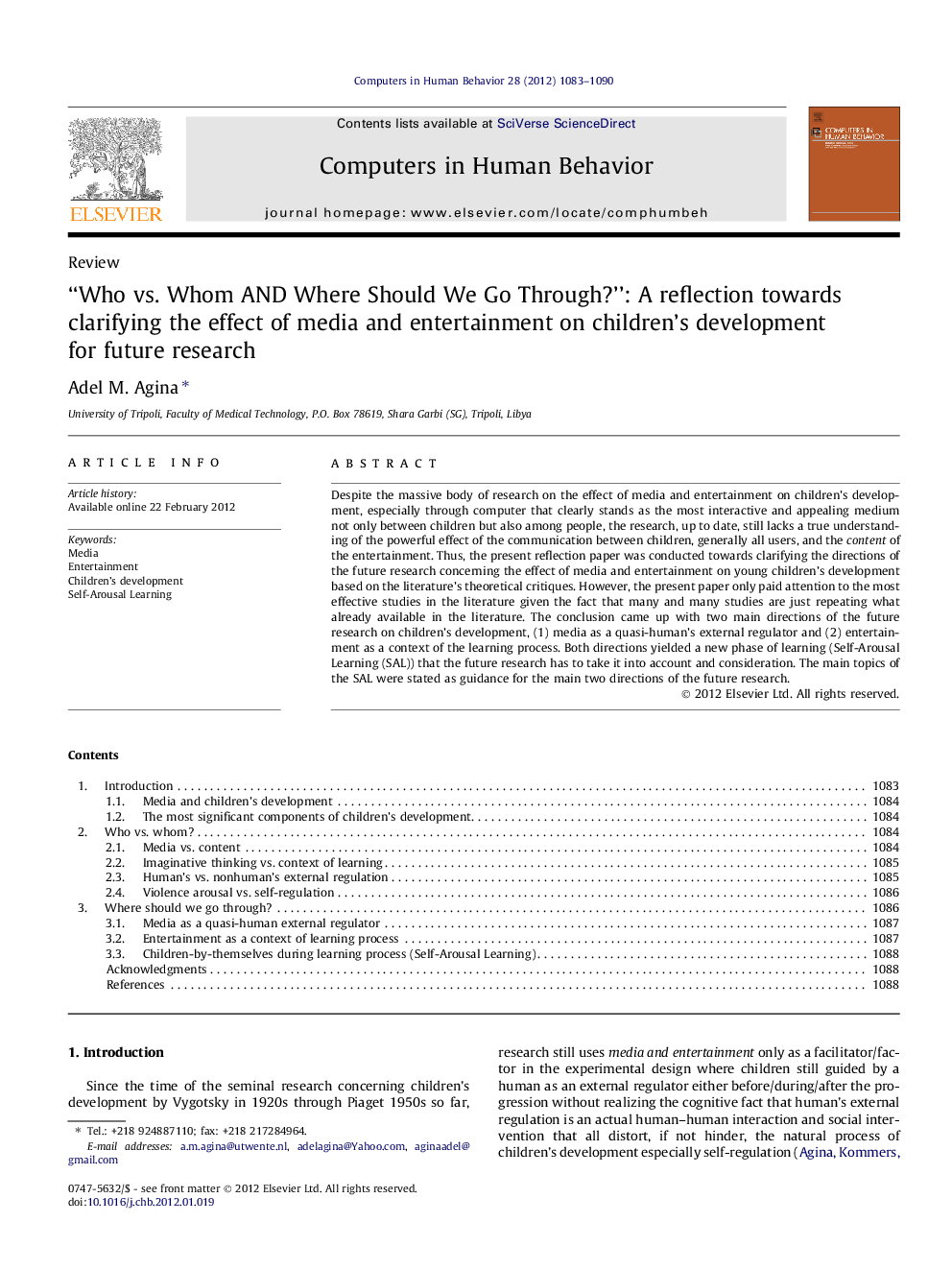| Article ID | Journal | Published Year | Pages | File Type |
|---|---|---|---|---|
| 351367 | Computers in Human Behavior | 2012 | 8 Pages |
Despite the massive body of research on the effect of media and entertainment on children’s development, especially through computer that clearly stands as the most interactive and appealing medium not only between children but also among people, the research, up to date, still lacks a true understanding of the powerful effect of the communication between children, generally all users, and the content of the entertainment. Thus, the present reflection paper was conducted towards clarifying the directions of the future research concerning the effect of media and entertainment on young children’s development based on the literature’s theoretical critiques. However, the present paper only paid attention to the most effective studies in the literature given the fact that many and many studies are just repeating what already available in the literature. The conclusion came up with two main directions of the future research on children’s development, (1) media as a quasi-human’s external regulator and (2) entertainment as a context of the learning process. Both directions yielded a new phase of learning (Self-Arousal Learning (SAL)) that the future research has to take it into account and consideration. The main topics of the SAL were stated as guidance for the main two directions of the future research.
► Scholars contradict each other in many directions. ► Aginian’s view vs. current findings of young children’s development (YCD). ► Media and entertainment do not engage deeply with YCD. ► Two main directions of the future research. ► A new learning phase has concluded (Self-Arousal Learning).
